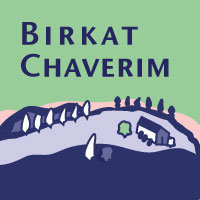I have lately been thinking about teaching values or rather the how of teaching values. Values are obviously relayed through actions but sometimes the nitty-gritty of every day life, the stresses of clothing, feeding and paying bills, extreme exhaustion which comes with family life, makes taking the time to talk about values difficult. It is true that values that are important to our family are often emphasized in the stories we tell, but I often wonder whether it gets across. With small children, this becomes important when we think about the episodes we emphasize in the weekly Torah portion.
I have always been curious about why people choose to relay certain ideas over others from the Torah portion, especially when considering the values that young children will pick up on (for instance, I always wonder why Vashti’s pimples is one of the first midrashim young girls are taught. If Rachav’s occupation can wait until later, I think the focus on external beauty can too.) I was thinking about this this week with regard to Parshat Korach. How does one discuss the idea of Korach’s rebellion while at the same time still emphasize to young children that it is ok to disagree and argue with others.
In a way it was kismet that i was lucky enough to receive a review copy of Rav Shlomo Riskin’s Torah Lights Bamidbar: Trials and Tribulations in Times of Transition this week. Books on the Torah portion must be opened up to the current Torah portion, right? Rav Riskin focused on several traditional themes that arise from the story of Korach but the way he focused certain issues rather resonated with me, and sparked/reenforced a teaching idea.
In the article “Good and Bad Controversies,” Rav Riskin asks whether controversy is actually a negative thing and proceeds to examine, based on traditional sources, what is a good controversy and what is a bad controversy. I won’t go into detail here but the gist of his interpretation is that Rashi’s explanation that Korach separated himself out of the congregation means that he “was interested in nullifying rather than in attempting to understand the side of Moses.” However, oral law has room for different opinions, values the differences in people (see Eruvin 37a) and many interpretations or opinions actually helps one become closer to the Creator.
This reminded me of the work of Edward de Bono and gave me a tie in for teaching values. In Edward de Bono’s, Teach Your Child How to Think
, he talks about good attitudes and bad attitudes towards thinking and has a set of exercises to develop good attitudes. Some of his good attitudes include:
“Separate your ego from your thinking. Look at your thinking objectively”
“Listening and learning is a key part of thinking.”
“Always be humble- arrogance is the mark of a poor thinker.”
I think we’re going to start looking at his exercises on a simple level and see what happens. I think this is a good lesson for the whole family since children often make you stop and think more than you could yourself. Often their simple questions, which could easily be dismissed, are deep, meaningful, and opportunities to grow.
Has anyone tried this?
Disclosure: Besides receiving a review copy, I have been a student of Rav Riskin. All opinions are my own. You can order your own copy of Rav Riskin’s book via the Koren website.


Add a Comment